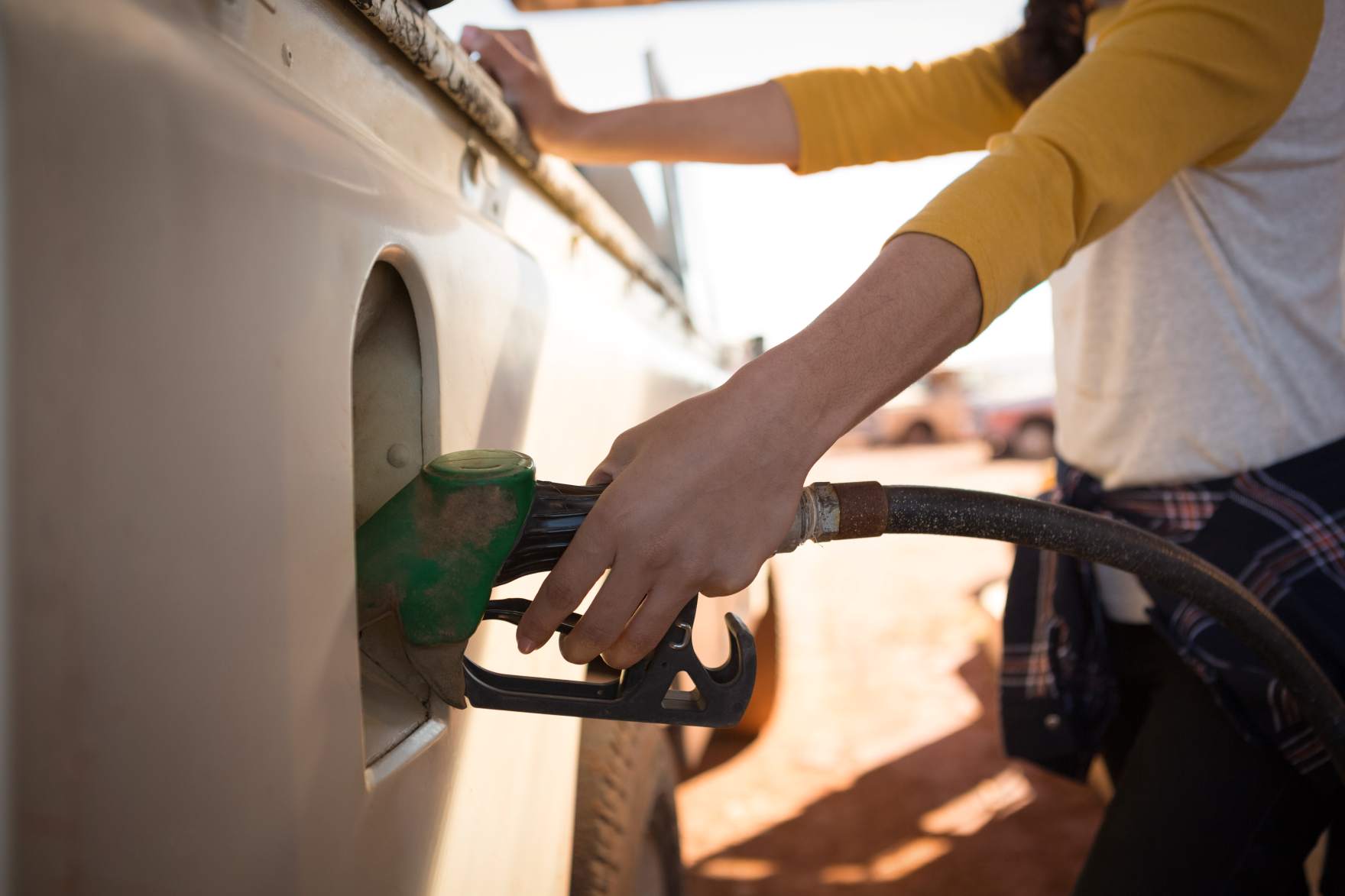
9000+ Cashless Garages
96% Claims Settled (FY 23-24)
10 Safety Tips to Follow While Refuelling Your Car

Most people visit petrol pumps without much forethought when it comes to refuelling. However, if safety methods are not adhered to, fuelling stations can become dangerous. Petrol/diesel is flammable, and carelessness can result in fires, explosions, and personal injuries.
Besides, distractions or negligence during refuelling can leave you vulnerable to theft, fuel spills, and other hazards.
Maintaining a few precautions can help individuals reduce risks and enjoy a safe refuelling experience. Here are 10 essential safety tips drivers should follow when fuelling their vehicles.
Top 10 Safety Measures to Follow When Refuelling at Petrol Pump
Consider following these safety tips when visiting a petrol pump for refuelling:
1. Keep Kids Away From the Fuelling Area
Kids must always be kept supervised while at the petrol pump. These areas often have heavy-duty vehicles plying nearby, which can be dangerous for children. So, guide them to a safe, designated area while refuelling.
Also, petrol pumps often store huge quantities of fuel. Thus, even a minor accident can have hazardous consequences. Parents and guardians should ensure children are informed about such possibilities and what to do under such circumstances.
2. Press the Engine Kill Switch Before Refuelling
Turn off your car’s engine when it’s time to fill up. Refuelling with the engine running creates a fire hazard when gasoline vapours ignite from sparks or heat created by the engine. Most petrol stations will post signs urging customers to turn off their vehicles before refuelling.
3. Avoid Lighting Matches or Smoking
Petrol and diesel are extremely flammable, and any open flame can cause catastrophic fires. Thus, one should never smoke or light matches at the fuelling station. Even tiny sparks from cigarette lighters can set off fuel vapours, leading to a fire or explosion.
Most gas stations enforce strict no-smoking policies, which are imperative for your safety and that of others.
4. Switch Off Your Cell Phone
Although the scientific evidence for cell phones igniting fuel stations is scant, such prohibitions are common and presented as precautionary. Static electricity or sparks from cell phones can ignite fuel vapours, leading to fires or explosions.
Thus, it is customary that you switch off your cell phone when refuelling your vehicle.
5. Beware of Thieves Around the Fuelling Area
Fuelling stations can be a hot spot for theft because people are often distracted while refuelling. Taking advantage of such situations, criminals may try to steal valuables from your car.
So, always remember to lock your doors and roll up your windows when leaving your vehicle. Trust your instincts, and if you observe any unusual behaviour, please report it to the station attendants or authorities.
6. Don't Forget to Pull Out the Fuel Nozel
It is easy to get distracted while refuelling, especially in a hurry. However, forgetting simple things can create dangerous situations. Before you drive away, pull the fuel nozzle out and fasten the fuel cap back on.
Leaving the nozzle in the tank may damage the pump, cause fuel to spill, or lead to a fire hazard. Always check twice before leaving the fuelling station.
7. Avoid Getting Back in Your Car While Fuelling
When you jump in your car and then out again to fill it with petrol, the friction of your clothes against the seat generates static electricity. This charge can discharge when you touch the fuel nozzle, possibly igniting gasoline vapours.
If you must return to your vehicle, touch a metal surface, like the car door, before grabbing the fuel nozzle.
8. Do Not Overfill the Fuel Tank
Overfilling fuel can lead to fuel spills, which are dangerous and harmful to the environment. So, don’t squeeze more fuel into the tank when the pump nozzle clicks off automatically. Spilt gasoline can evaporate and form flammable vapours, raising fire risk.
Also, overfilling can harm your vehicle’s evaporative emissions control system, resulting in potentially expensive repairs.
9. Check For Fuel Leakage
Every time you finish refuelling, check around your vehicle for any possible fuel leaks. In case you see a leak or smell gas, avoid starting your vehicle and alert the authorities immediately. Petrol and diesel are highly flammable and can lead to fires or explosions if not cleaned immediately.
10. Maintain Good Hygiene When Handling Fuel
Gasoline is made up of toxic chemicals harmful to your skin and respiratory system. Avoid skin contact with fuel; wash your hands and clothes immediately with soap and water if you unknowingly touch it.
Prolonged exposure to gasoline vapours can make people dizzy and give them headaches and nausea. If any of these symptoms occur, you should be relocated immediately to a well-ventilated space.
Refuelling your vehicle is straightforward. However, it can become potentially dangerous if safety precautions are not followed. Thus, to ensure your safety, that of your passengers, and those around you, follow the above-mentioned tips when visiting a fuelling station.











